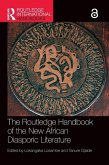The literature of emigrants to the Anglo-American world, particularly from former British colonies, contains overt and subtle references to the differences in lifestyle and culture they encounter upon entry into their host countries. They are faced not only with a serious re-evaluation of their own values and beliefs, but also with an immediate delegation to the marginal "other" of western society. This decentration of a previously whole, identifiable self often produces a state of incessant anxiety that seeks stability through the establishment of a new identity that conforms to perceived expectations of the dominant society as a condition of acceptance. This search for a new identity gives birth to controlling strategies that direct the transformation of identity and behavior. Each of the three authors discussed in this book has taken a different approach to dealing with issues of marginality and otherness in a culture of Eurocentric dominance. While Salman Rushdie's works reflect alienation from, and denigration of, traditions and beliefs of the culture of his origin, Bharati Mukherjee's approach to adaptation in the Western culture is marked by an affinity towards hybridization and change while both preserving, to some degree, traditions and beliefs from her culture of origin and demanding as well change in the host culture. Kamala Markandaya differs from both Rushdie and Mukherjee in professing an affirmation of spirituality and mythical beliefs while nevertheless adapting to the West. The respective strategies of the three authors are broadly characterized as mimicry, hybridization, and devotion.
Hinweis: Dieser Artikel kann nur an eine deutsche Lieferadresse ausgeliefert werden.
Hinweis: Dieser Artikel kann nur an eine deutsche Lieferadresse ausgeliefert werden.








